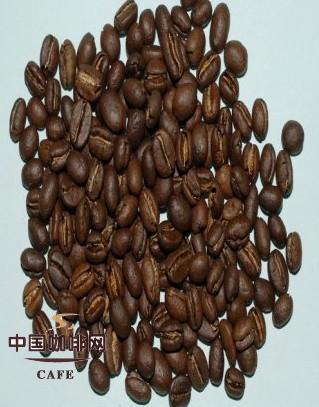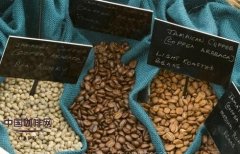How to control the roasting degree of coffee

First, exchange time and constant attempts for success.
This baking method controls the degree of baking (for example, I-ROAST) by adjusting the time on the machine, or by controlling the baking degree recommended by the manufacturer, to try baking several times. Then adjust the baking degree according to the decreasing time. If you think the baking is too sour and too bright, then extend it a little longer next time. On the contrary, if you feel too bitter and astringent, then shorten the time.
The disadvantage of this method is that the results obtained this time cannot be applied to another kind of beans, and each kind of bean must be tried repeatedly to get the best baking degree. Also remember that baking records can only be made on this machine, not on another machine.
Second, the degree of baking should be controlled by the changes of vision, sound and smell.
People's five senses are the most widely used and the best judgment tool to control the degree of baking. Just like when you watch a movie and think it's over, you naturally know that roasted coffee beans are like this. If you think it smells, colors and sounds to a certain extent, you will know that this is what you want.
Third, use electronic instruments and equipment to control the degree of baking.
The electronic instruments we are talking about here refer to things like sensors. The surface temperature of the coffee can be obtained by burying the sensor in the roasted coffee beans. The temperature obtained by the sensor is only a rough number, which can only be used as a reference. When the value on the sensor reaches a certain value, it is known that it is over.
The values of sensors are different on different baking utensils and can not be used as a mutual reference.
Important Notice :
前街咖啡 FrontStreet Coffee has moved to new addredd:
FrontStreet Coffee Address: 315,Donghua East Road,GuangZhou
Tel:020 38364473
- Prev

The blending of coffee beans and fine coffee beans.
People need to put coffee from different places together for several different purposes. The ideal goal, of course, is to piece together a coffee that tastes better than any of them. But generally speaking, Arabica coffee from a single origin is enough to make coffee that tastes good for export; it has a delicate flavor, a soft taste and a sweet aftertaste. So there is no need to match (that is, different places of origin
- Next

Basic knowledge of fine coffee beans in the roasting stage of coffee beans
Light baking is rarely used and is generally used only for testing. Cinnamon roasting is widely used in some canned coffee. Deep roasting is a process in which coffee goes to a dead end and is gradually carbonized. Degree description stage description stage description special point description flavor and appearance description refers to baking until the end of the first burst. Light baking
Related
- Beginners will see the "Coffee pull flower" guide!
- What is the difference between ice blog purified milk and ordinary milk coffee?
- Why is the Philippines the largest producer of crops in Liberia?
- For coffee extraction, should the fine powder be retained?
- How does extracted espresso fill pressed powder? How much strength does it take to press the powder?
- How to make jasmine cold extract coffee? Is the jasmine + latte good?
- Will this little toy really make the coffee taste better? How does Lily Drip affect coffee extraction?
- Will the action of slapping the filter cup also affect coffee extraction?
- What's the difference between powder-to-water ratio and powder-to-liquid ratio?
- What is the Ethiopian local species? What does it have to do with Heirloom native species?

